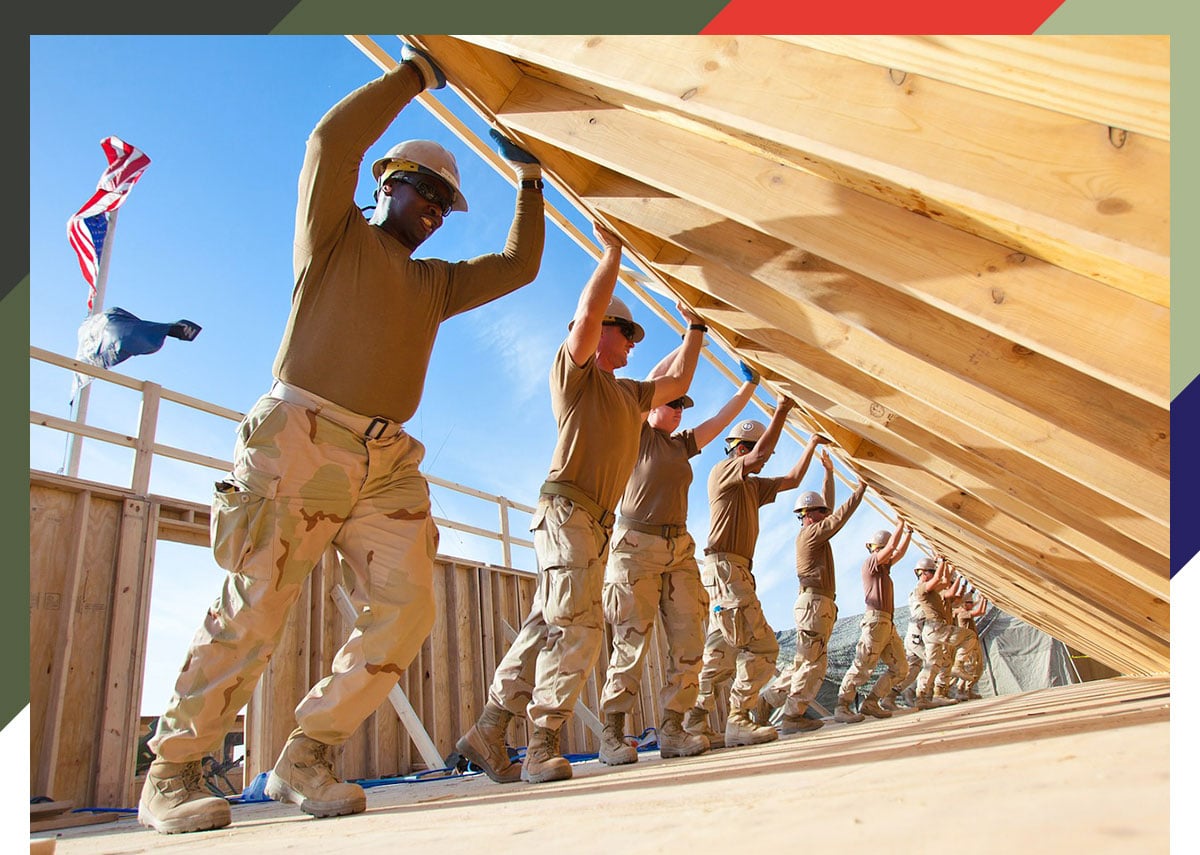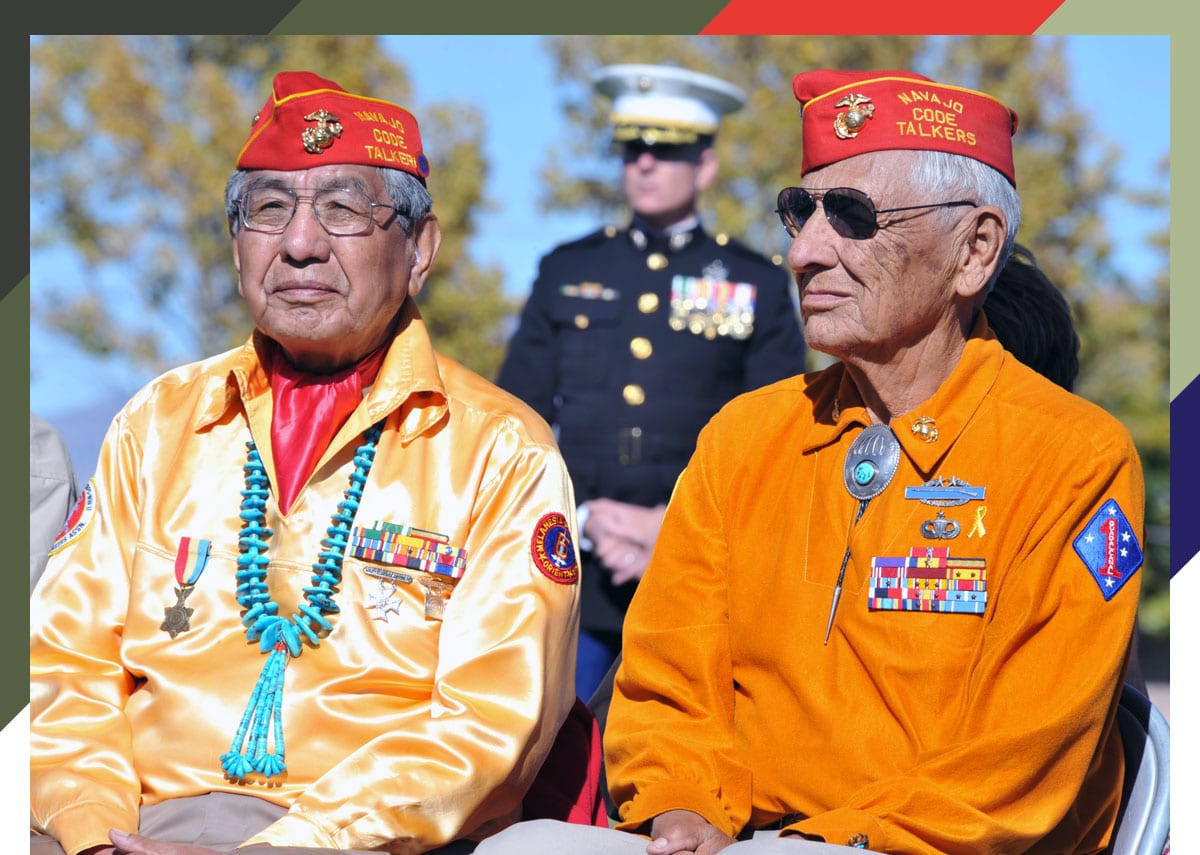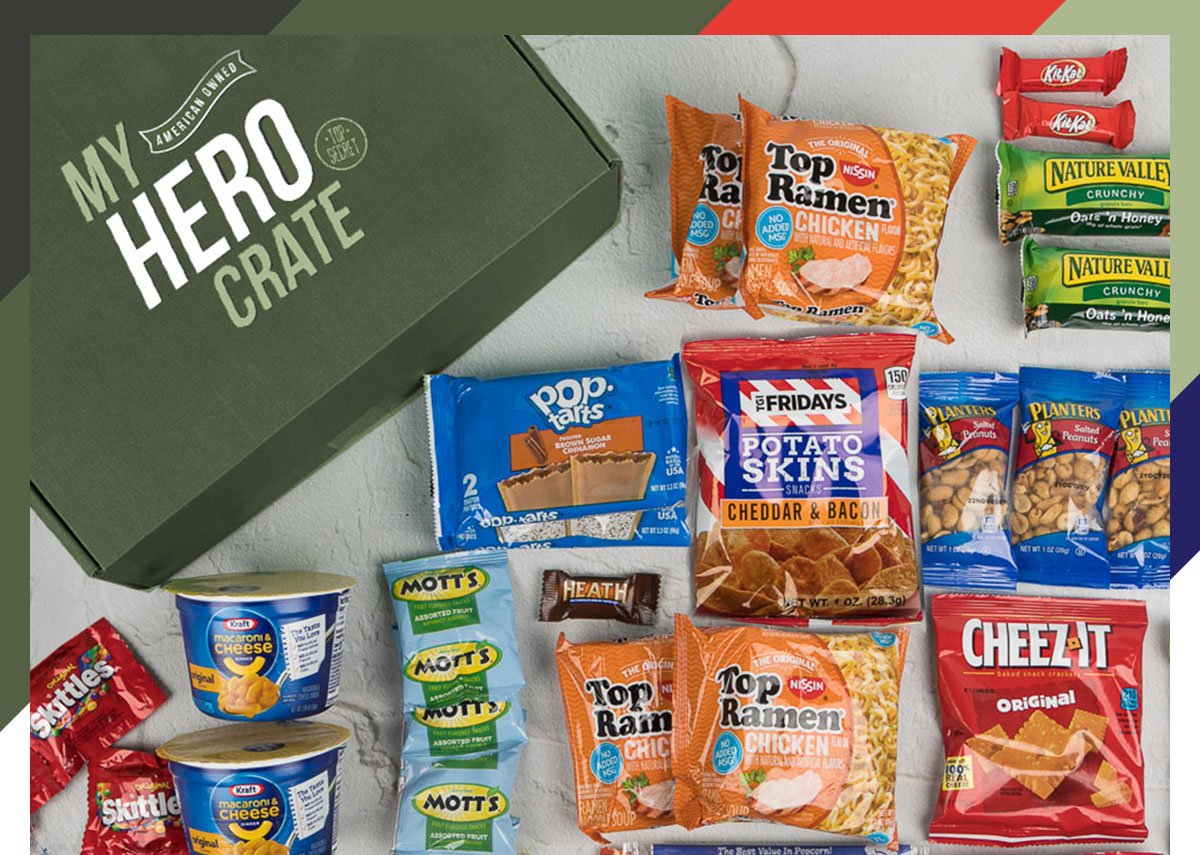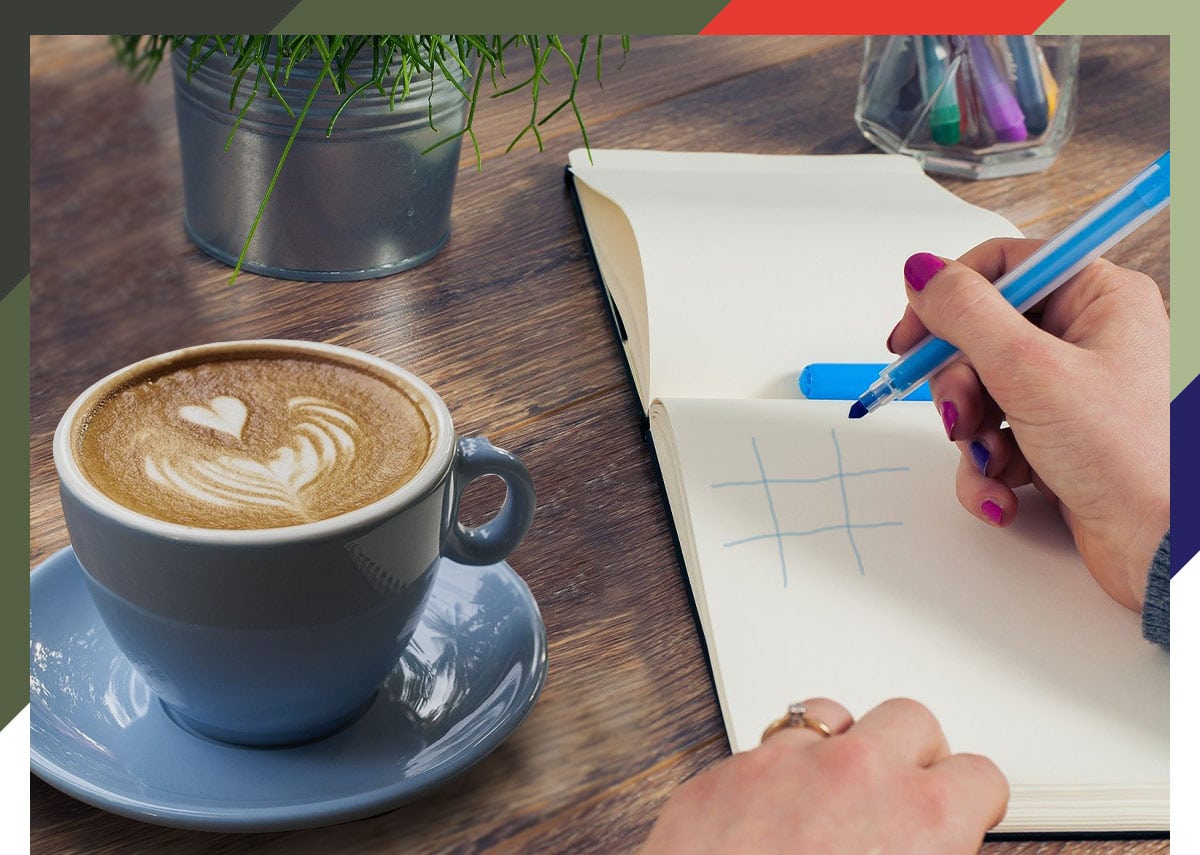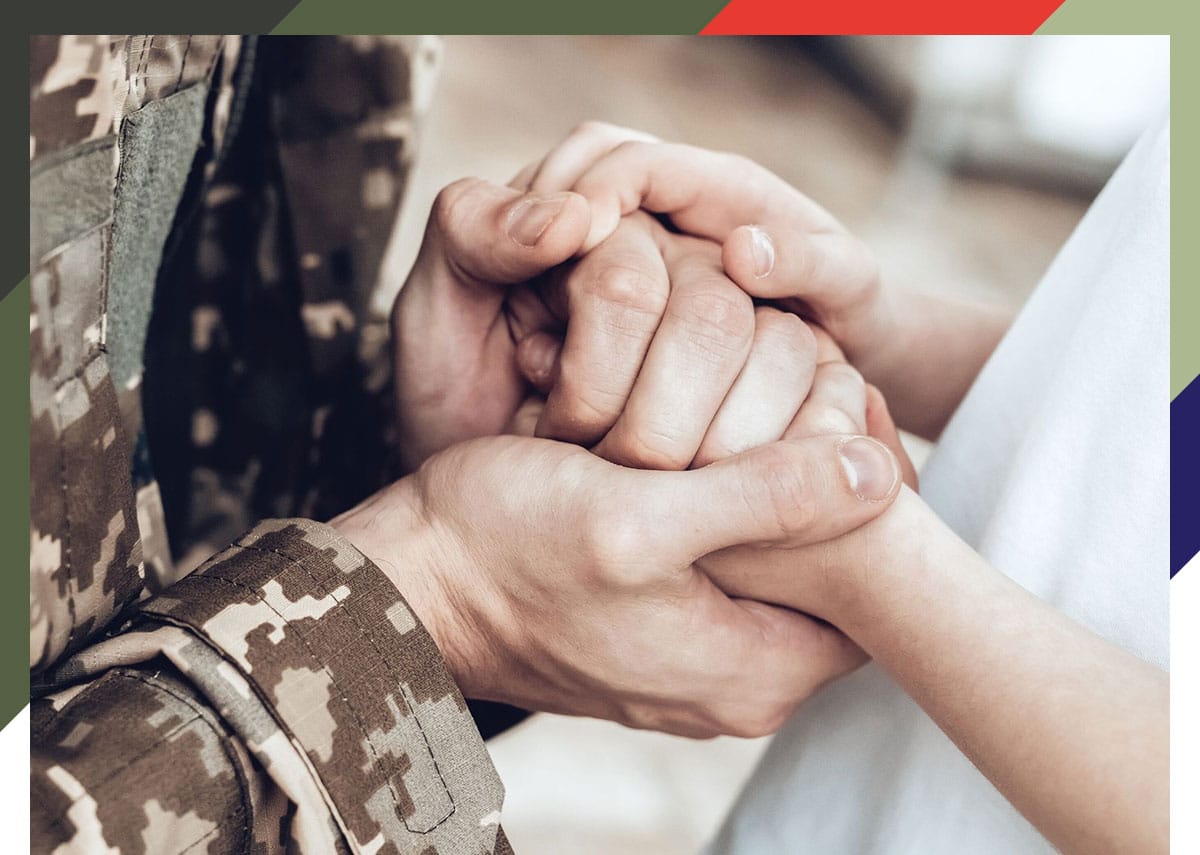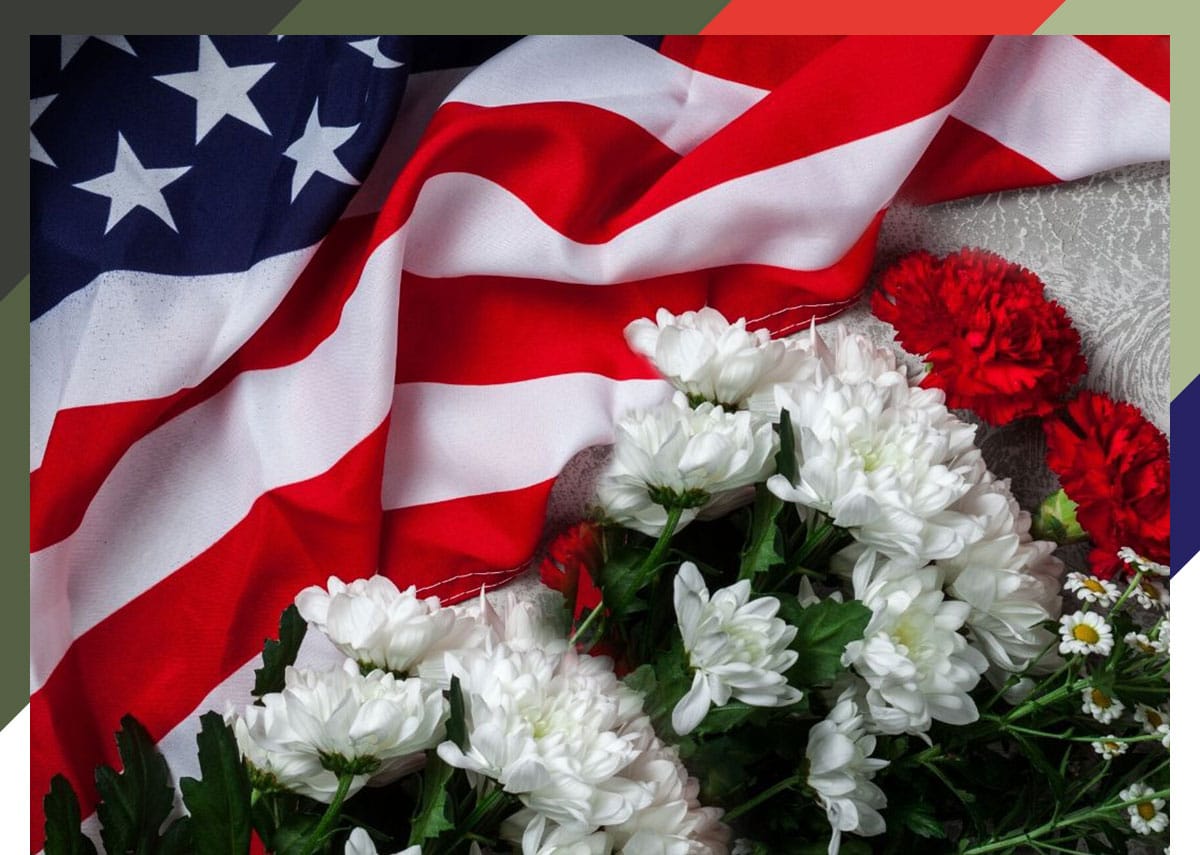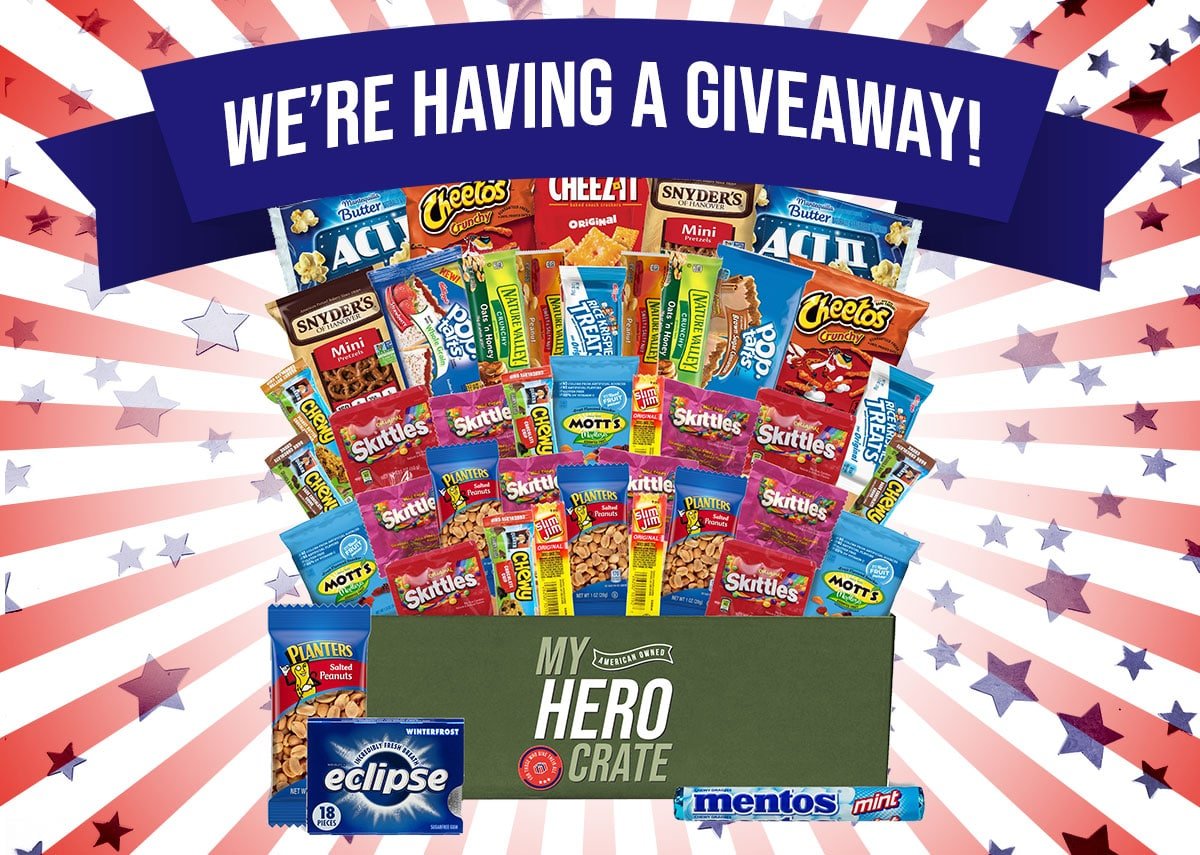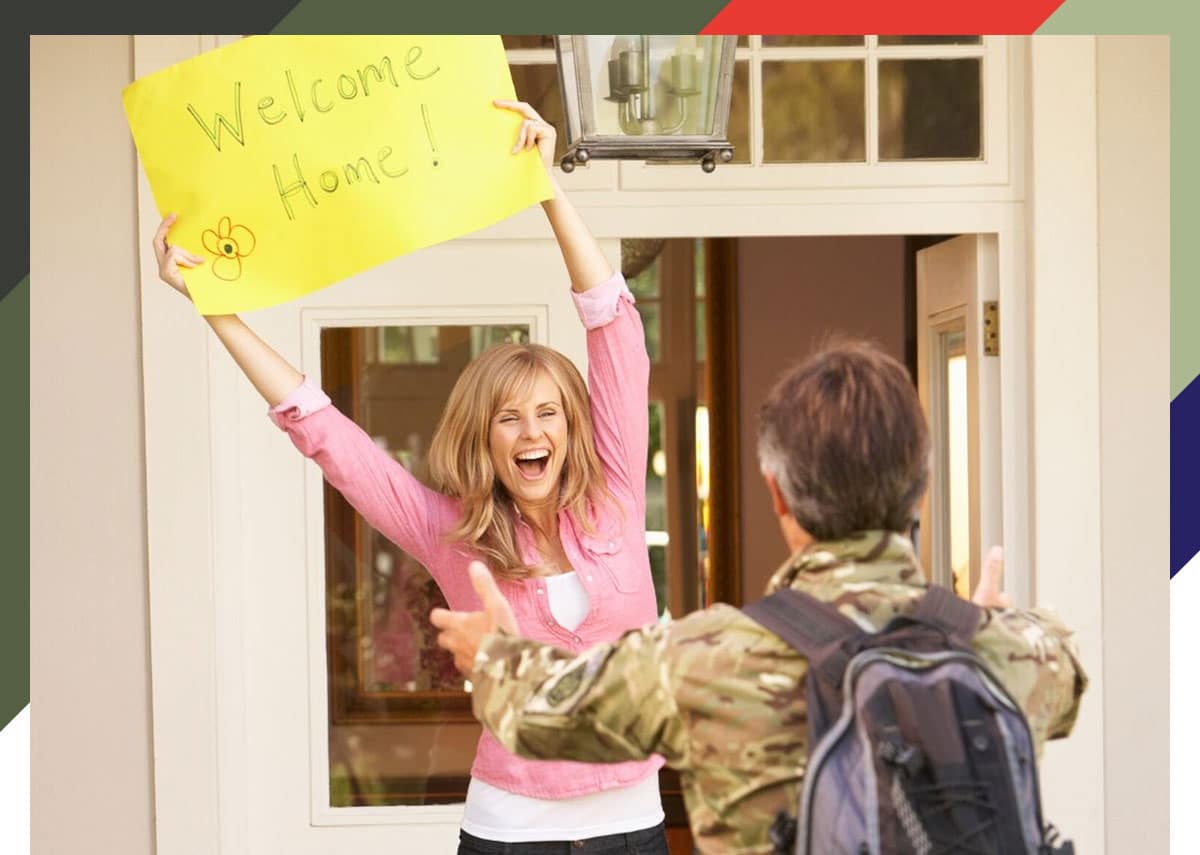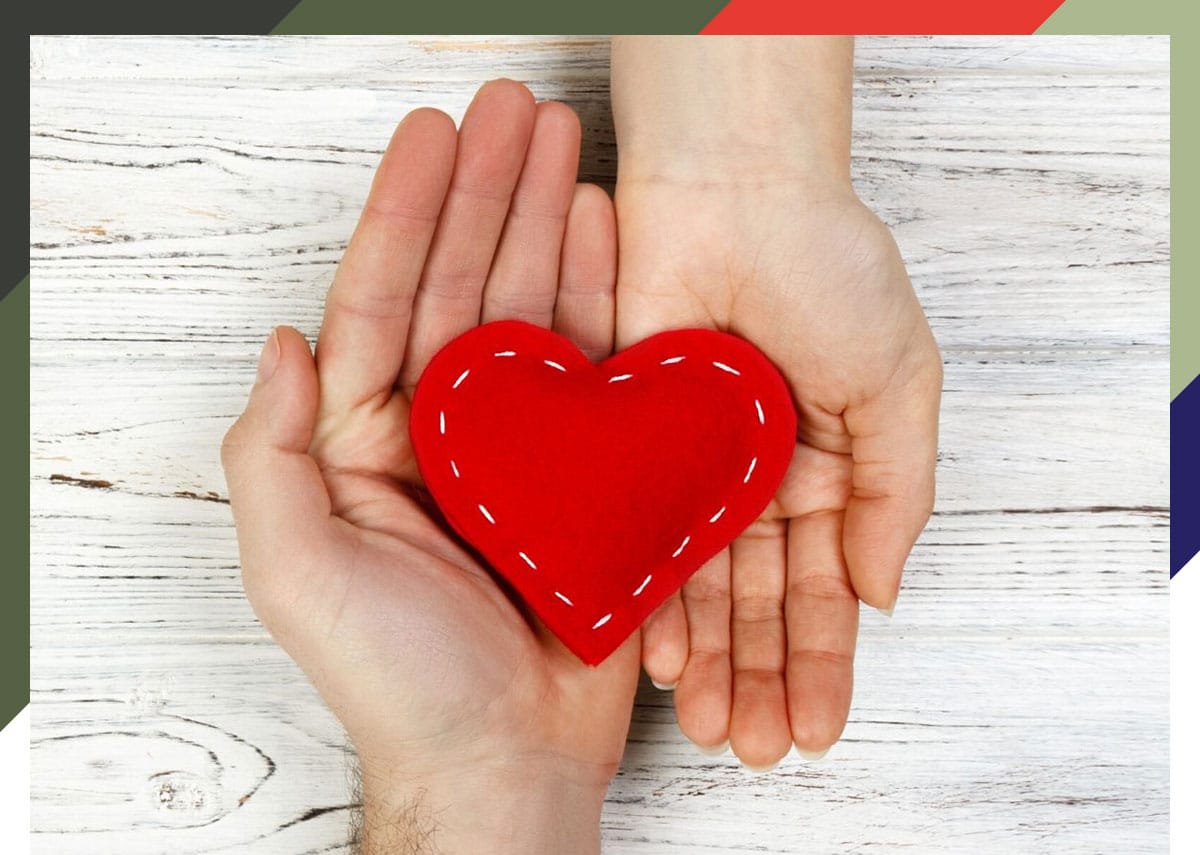Humans are social creatures. Sociologists and archaeologists have uncovered proof that even ancient humans lived together, hunted together, and enjoyed social activities. These preferences for socialization are thoroughly ingrained in our daily lives. They provide us with parts of our identity and teach us skills to lead successful lives. Having human connection is so vitally important, and for many reasons. Joining the military can feel isolating, especially as deployments put unimaginable physical distance between soldiers and their families and other loved ones. Thankfully, part of being in the American armed forces is the camaraderie and team spirit among military branches and units. Discharging from the military, then, can be quite difficult, as veterans are forced back into the civilian world among people who don’t fully understand their experiences. So, how can armed services members and veterans still get the valuable human connections and understanding they need when faced with a sense of isolation? And what does human connection look like? This month, My Hero Crate explores this important topic.
Depending on the environment you grew up in, your personal preferences, and your mental state, human connection may look different to you than it does to others. Data from university research shows that simply having access to a supportive person is sufficient to help someone adapt to stress — including stress of a new lifestyle. In this case, there is no physical, ongoing human connection, but just the knowledge that it is available. Sometimes, people who are particularly independent need only this to feel connected. However, other people require more intensive interaction to feel a sense of belonging and safety. Human connection looks different to everyone.
Having a support system and feeling a sense of belonging is not only necessary to human development, but it also helps our health.
So how can military veterans or current personnel get the most from their opportunities for human connection? Here are a few ways you may find appealing:
-Support groups for veterans -Volunteer opportunities for a cause you support -Living near or with a family member or other loved one -Weekly family dinners if you live separately -Participating in therapy with a counselor or in a group session -Joining a club or enrolling in a continuing education class -Working a job with supportive coworkers and bosses -Choosing a hobby that requires interaction with others
For family members who are far away from their loved ones in the military, showing your support can help remind your favorite soldier that you’re there for them. My Hero Crate’s military care packages can help you do that. Select a care package of your choice, and we’ll send it to your hero, no matter where they’re stationed.
A Care Package from My Hero Crate Can Help Provide It
Perception of Human Connection
The Benefits of Belonging
The lack of human connection has been shown to be more harmful to your health than obesity, smoking, and high blood pressure individually. Connections also can relieve feelings of anxiety and depression and help us regulate emotions. When we feel a sense of belonging or that people care about us, we tend to have higher self-esteem. People who feel they have strong support systems, including friends and family, tend to have stronger immune systems, too!
Human connection can also help you live longer. A review of 148 separate scientific studies with more than 300,000 participants shows that those with stronger social relationships had a 50 percent increased likelihood of lengthier survival times. These results remained true across a number of factors, including age, initial health status, and cause of death.
Social connectivity and a sense of belonging also decrease the risk of suicide. Although quite a few factors lower the risk of suicide, one of these is connectedness. According to the Centers for Disease Control and Prevention, connectedness is, “the degree to which a person or group is socially close, interrelated or shares resources with other persons or groups.”
Healthy relationships, friendships, and close family ties are proven to reduce the risk of suicide. This connection, then, is especially important for a demographic like military veterans, of whom 22 die of suicide per day and up to 30 percent suffer from post-traumatic stress disorder.
Getting the Connection
Show Your Support and Caring with a Military Snack Box
Order a care package today to stay connected to your hero.
Category: Military Care Package
All About the Navajo Code Talkers
Celebrate Every Day with Care Packages from My Hero Crate
This year, Navajo Code Talkers Day is recognized on August 14. It’s a special day honoring the contributions of Native Americans during World War II and their contributions to the evolution of the U.S. Code related to Native American languages, as well as First Nations tribe members who participated in the U.S. military.
There is some confusion around this day, and we think it’s worthwhile to clear up some misconceptions and celebrate our First Nations heroes for their contributions to military forces.
Were Navajo Code Talkers all from the Navajo tribe?
Navajo Code Talkers Day doesn’t single out the Navajo tribe for recognition. The name of the holiday — and the code, too — are kind-of misnomers. Navajo code is a broader term for the coded speech used to fool Nazis and Japanese Imperial forces during World War II. Navajo code depended on the complex Navajo language, and it remains one of the only codes used by the U.S. military to have never been broken during conflicts.
Other tribes associated with the World War II efforts include the Cherokee, Choctaw, Comanche, and Hopi.
When was First Nations Code first used?
Some sources say First Nations languages were used as early as World War I, when the Choctaw language was used to code a message in preparation for an attack on German forces. The CIA even claims other countries may send their military members to the U.S. to study the Code after World War I.
Why was the Navajo language used?
Philip Johnston partnered with the U.S. Marines because of his expertise in the Navajo language. He’d been living on Navajo reservations since he was a child, and had the idea to create a security code based on the complex Navajo language. The Marine Corps knew they needed native speakers for the project to be a success, so they recruited 29 members of the First Nations.
Non-native Navajo speakers, like Johnston, are extremely rare. The Code was made even more secure by encrypting communications using Navajo as a word-substitution code. It utilized common cryptography games to apply to war. For example, Navajo bird names were applied to weapons of war.
What did the Code Talkers accomplish?
Aside from assuring the security of American military secrets, the Code Talkers could translate, send, and retranslate a coded message in about 150 seconds, an incredible feat that would normally have taken hours. Military history experts believe the U.S. may not have won the Battle of Iwo Jima without the Code Talkers.
Recognizing Code Talkers Today
The Navajo Code Talkers program was declassified in 1968, but it wasn’t until 1982 when President Ronald Reagan established Navajo Code Talkers Day. In 2000, President Bill Clinton awarded Congressional Gold Medals to 29 Code Talkers, followed by President George W. Bush, who presented medals to even more.
There were about 400 Navajo Code Talkers in total. As of 2019, only five were still living: John Kinsel Sr., Samuel F. Sandoval, Joe Vandever Sr., Thomas H. Begay, and Peter MacDonald.
How to Celebrate
Although the likelihood of you personally knowing any surviving Navajo Code Talkers is rare, you can still acknowledge the day by remembering and talking about their contributions to the U.S. military’s victory in World War I and World War II.
At My Hero Crate, we think every day is a good day to thank a military hero. Express your gratitude to yours with a military care package from My Hero Crate.
About the image above:
Top Five Reasons a Military Snack Box Makes a Great Gift
Care Packages to APO/DPO/FPO Addresses Ship for Free
Not a day goes by that you don’t think of your loved one in the military. Whether they’re stationed overseas or on a domestic military base, being far apart can be heart-wrenching. You probably remember the emotions you felt when they first left for basic combat training, and you wrote them letters almost every day. The worry and the pride never fades, and you probably feel compelled to show your love in new ways, ways you didn’t have to consider before because your loved one is nearby.
A thoughtful way you can express your love for your military member and personal hero is by sending them a military snack box from My Hero Crate. Here are five reasons why our armed forces care packages make such great gifts.
1. Active people have strong appetites.
With your loved one taking part in physical activities every day, sometimes all day long, they are sure to get hungry. The contents of our snack boxes are military-approved, so the treats we’ll send to your soldier will be able to be appreciated and consumed. Hearty treats like nuts and beef jerky satisfy appetites until the next meal time.
2. American soldiers deserve all-American gifts.
Our armed services troops are fighting to defend our country, so it only makes sense that our snacks come from American suppliers and are fulfilled by an American company. (That’s us! We’re based in Ohio!). While we’re sure your hero would enjoy any gift you send them, there’s just something special about receiving a patriotic care package!
3. Our memories are tied to food.
Especially in the United States, we tend to tie our most-loved memories to food. Think about it. What memorable family reunion doesn’t include a potluck meal of beloved family recipes? What snacks did you enjoy when you attended a sporting event together? Our military snack boxes contain a variety of treats that are sure to remind your hero of your special times together.
4. We make care package shipping easy.
Of course, you could put together your own care package to send it to your soldier, but you have to worry about finding a suitable package, then visiting the post office to pay for postage. My Hero Crate takes care of all of it for you, which saves you time — time you could spend writing your loved one a letter or accepting their phone calls. And, you don’t need to know any special shipping guidelines, either.
5. Military snack boxes are appropriate for every occasion.
While most military bases are well-stocked with civilian snacks that your loved one can purchase, it’s way more special to receive a big box of treats because it means someone was thinking of you! Our snack boxes are a great gift for every occasion: birthdays, holidays, anniversaries, or celebrating a big achievement. Or, you can send one just because; that’s why we offer our snack box subscription service!
We created My Hero Crate because we care, and because we know you do, too. To show your military loved one that you’re thinking of them, visit our website and pick out the perfect snack box to send to them, no matter where they’re stationed.
Fun Games to Play via the Mail
Add an Element of Fun to your Letters
If your favorite member of the military is deployed overseas or away at basic combat training, your interactions are limited to short phone calls and heartfelt letters sent in the mail. It’s sometimes hard to come up with motivating and inspiring words to share in your notes when you’re missing your soldier or soldier-in-training and wish they were back home with you.
The fact is, no matter what you say in your letters, no matter how mundane the topic of conversation is, your soldier treasures your handwritten mail because it’s a connection to you — a fiancée, parent, sibling, or dear friend.
Liven up your weekly letters by adding a quick, paper-based game on a sticky note or index card. Play your first turn, and mail it to your soldier. They’ll play their turn, and send it back to you with their next letter, continuing until the game is complete. Here are a few games you can play via the United States Postal Service!
Tic Tac Toe
This classic game doesn’t need explaining; everyone knows how to play! Draw up your nine-sectioned game board, and decide who will be Xs and who will be Os — and write it on your note so no one forgets! Who will win this game of strategy? You’ll soon find out!
Dots and Boxes
For a longer-term pencil-and-paper game, draw up an empty grid of dots in the desired size. Take turns adding a single horizontal or vertical line between two unjoined, adjacent dots — no diagonals allowed! The player who completes the fourth side of a box earns a point and writes their initial inside the box before taking another turn. The game is over when every box is claimed. The person with the most completed boxes wins.
Hangman
Come up with a word or short phrase, but keep it a secret! Instead, draw lines with spaces between to represent each letter. Your loved one can take guesses as to which letters fit into the words, Wheel of Fortune style, without the spinning! If they get a letter right, write it into the space. If the letter is wrong, add a component to a hangman drawing. If you don’t like the idea of drawing a hangman, your drawing can be anything — a dog, cat, boat, car, or anything else you prefer, to keep the game light.
Sprouts
Draw several dots in a random pattern on your sheet of paper. We recommend starting with four or five, but you can play with as few as two. Each player will take turns drawing a line between two dots (or a dot back to itself) and adding a new spot somewhere along the line. The lines can be straight or curved, but can never touch or cross a line. The new dot a player adds cannot be placed on an existing endpoint, and no spot can have more than three lines attached to it. The game is over when a player is the last to draw a line that follows these rules. Like Dots and Boxes, this game is rooted in mathematical strategy!
Gifts for Military Members
When basic combat training is over, or if you’re looking for something more special than a pencil-and-paper game board to send your loved one overseas or stationed on base away from home, My Hero Crate builds and sends military care packages for your heroes!
Each My Hero Crate contains an assortment of military-approved snacks and treats, all sourced from American suppliers. Choose from our specialty military care packages, including gift boxes for soldiers with special diet requirements, or purchase a monthly snack box subscription so your hero gets an Army care package twelve times a year — or whichever branch of military your loved one serves in!
What is PTSD?
It’s a Common Mental Health Issue that Affects Many
Posttraumatic Stress Disorder (PTSD) is a mental health problem some people develop after experiencing or witnessing a life-threatening event, like military combat. It’s perfectly normal to have upsetting memories, emotional reactions, or issues falling asleep after such traumatic events. Some people feel better within a few months, but people who have prolonged symptoms might have PTSD.
Frequency of PTSD in Military Veterans
It’s very common for members of the armed forces to develop PTSD. No one should ever feel alone for struggling with it. In fact, according to Veterans Affairs, between 11 and 20 percent of every 100 veterans of Operation Iraqi Freedom and Operation Enduring Freedom have PTSD.
PTSD didn’t start during these most recent times of war, however. Twelve percent of veterans of the Gulf War, also called Desert Storm, have been diagnosed with PTSD. And even as far back as the Vietnam War, about 15 percent were diagnosed in the late 1980s, but today it’s estimated that 30 percent of Vietnam veterans have had PTSD in their lifetime.
Who Can Develop PTSD?
Anyone can develop PTSD at any point in their lives, even from a very young age, if they’ve experienced a long-lasting or short, but very intense traumatic event. Risk of developing PTSD is heightened if the person does not get immediate or appropriate care after the trauma, or if they don’t have enough social support. Of course, it’s possible even with these in place, a person can still develop PTSD, and it isn’t their fault at all.
What Are the Symptoms of PTSD?
There are generally four types of PTSD symptoms, and not everyone will experience them in the same way.
1.Reliving the event, which can cause feelings of fear, nightmares, or the sense that you’re experiencing the event all over again.
2. Avoiding situations that serve as reminders of the trauma, such as not talking about the event, avoiding crowds or driving, or whatever else may remind you of what happened.
3. Experiencing negative changes in your emotions or beliefs, such as no longer having loving feelings toward other people, or taking on a negative worldview.
4. Feeling hyper-aroused, also known as feeling overstimulated. The VA refers to this as “feeling keyed up.” This sometimes causes you to feel very irritable, lose sleep, have trouble concentrating, or startle easily.
PTSD Treatments
The most successful PTSD treatments are trauma-focused psychotherapies. This type of treatment helps to process traumatic experiences.
The VA uses:
- -Prolonged Exposure: teaches those with PTSD to face their negative feelings, including talking about the trauma.
- -Cognitive Processing Therapy: teaches those with PTSD to reframe their negative thoughts about the trauma and focuses on discussing negative thoughts.
- -Eye Movement Desensitization and Reprocessing: helps make sense of trauma by thinking about the trauma while paying attention to back-and-forth movement or sound (like a finger waving side to side, or a single tone).
How Can I Support Someone with PTSD?
If your loved one is suffering with PTSD, there are a few ways you can help support them.
- -Don’t force them to talk about their trauma if they don’t want to.
- -Anticipate their triggers. For example, if you know a certain sound will trigger a negative memory of the traumatic event, prepare for the trigger. Come up with a plan with your loved one about what you can do when they experience a trigger.
- -Do normal things in a normal routine. Don’t avoid everyday actions, stop planning vacations, or cease normal functions. A sense of normalcy goes a long way in helping those with PTSD.
- -Remain calm during emotional outbursts and let your loved one know they are safe.
- -Meet with your loved one’s mental health providers to learn how you can help in their specific situation.
Why My Hero Crate Cares About PTSD
My Hero Crate cares deeply about our service men and women and works every day to help enhance their lives, not just through creating special care packages for the military, but also by donating proceeds to veteran-backed organizations. We understand that mental health issues can be difficult to manage, and we hope our work will be a light in the dark for those who benefit from the organizations we support. Shop our military care packages to send to your favorite hero.
A Brief History of Memorial Day
Thank Our Military for Your Continuing Freedom
In 2020, Memorial Day is Monday, May 25. Although the national holiday may be a little different this year because of social distancing practices, the day will still carry the same heavy meaning as it has every year since it was established.
At My Hero Crate, we celebrate the soldiers deployed, living on military bases, and everywhere else, working diligently to protect our country. But we would be mistaken to not acknowledge those who gave their lives for us. Memorial Day is the one day set aside every year to do that — but we’re truly thankful every day.
The Meaning of Memorial Day
Memorial Day, sometimes called Decoration Day, is observed in honor of the men and women who died while serving in the armed forces of the United States of America. We are literally memorializing the military members who made the ultimate sacrifice, no matter what branch they were in: Marine Corps, Navy, Air Force, Army, Coast Guard, or National Guard. It’s a day to reflect on and remember why we are free to live as we do in this country.
Memorial Day is different from Veterans Day, celebrated on November 11 every year. Veterans Day is a time to thank and honor all military members who served, including those who came home alive. Veterans Day also acknowledges those soldiers who served during peacetime and did not see combat during their tenure.
The First Memorial Day
It seems there is no official documentation of the first Memorial Day, but the custom of honoring fallen heroes is a worldwide tradition extending through history. Some say the day was first officially acknowledged in America after the Civil War, but there are records that show regions and countries honoring their service members prior to that.
Regardless, Memorial Day became a national holiday in the United States in 1971, by an act of Congress. Americans celebrate it every year on the final Monday of May.
Memorial Day Activities
Traditionally, on Memorial Day in the United States, people visit cemeteries and memorials to place flowers and other mementos on the graves of their ancestors, particularly those who served in the military. At national cemeteries, like Arlington, volunteers place American flags on each grave.
Some families use Memorial Day as a time to get together with their loved ones, to barbecue, and relax. The day is often thought of as the unofficial start to the summer season, although the first day of summer isn’t until June.
Memorial Day Symbolism
You might remember seeing poppy flowers worn on lapels on Memorial Day or Veteran’s Day. There are historical and literary reasons for this.
When the European ground was disturbed on the battlefields during World War I, poppy flowers began growing and blooming. The iconic red poppy was described in the poem “In Flanders Fields,” written by a Canadian soldier, John McCrae, in 1915.
The flower came up in another poem, this one written by Moina Michael in 1918, called “We Shall Keep the Faith.” Americans drew inspiration from these references and began to wear a red poppy in remembrance of those killed in World War I.
Since then, the poppy has become a symbol to memorialize all veterans of any war, and quickly spread to Canada, Australia, and Great Britain, among other allies.
What You Can Do on Memorial Day
If you want to properly thank America’s fallen soldiers for their service, you can:
- Participate in the national moment of silence at 3 p.m., whatever your time zone may be.
- Volunteer to decorate the graves of soldiers at your local military cemetery or a national cemetery, if you live close-by.
- Lay flowers on the graves of your veteran family members.
- Donate to organizations that help injured service members or families of soldiers who lost their lives in battle.
How My Hero Crate Honors Veterans
My Hero Crate curates snack gift baskets designed for families to send to their loved ones in the military. Each care package is full of treats both made in America and distributed by American companies. For every purchase made, we donated to a non-profit veteran-backed organization. Visit our website to see the organization we’ve selected this month, and to shop our care packages.
Enter To Win 1 of 5 Military Snack Care Packages!
Enter to Win a Military Snack Care Package!
To celebrate our website launch we are GIVING AWAY FIVE Military Snack Care Packages! Share it with someone you care about! We will announce the winners on Memorial Day.
HOW TO ENTER:
•Follow @myhercrate on Instagram or Facebook
•Tag three friends on a contest post
•Like our page
•Sign Up For our newsletter below
No Purchase Necessary. Must be 18 Years or Older to Enter. Must Live in the United States. Shipping address must be in the United States, US military bases only (dpo/fpo/apo). This contest is not affiliated in any way by Instagram or Facebook. Contest begins 5/18/2020 12A EST and Ends 5/25/2020 12P EST. Winners will be drawn Monday, 5/25/2020 12P EST and announced on both Instagram and Facebook.
Sign-up For Our Newsletter!
Sign up for our monthly newsletter and we’ll get you up to date on what we’re working on, as well as making sure you have the latest and greatest deals we have to offer!
Fun Ideas For When Your Soldier Comes Home
Or Send a Gift for Military Personnel When You Can’t Visit in Person
It’s the phone call or letter every military family member waits to receive: your soldier is coming home! Whether it’s for a short visit or to return home from a lengthy deployment, a soldier returning to their family is worthy of celebration! (And at My Hero Crate, we think our military are heroes and deserve celebration all the time.)
Need to get to planning for your soldier’s return? Choose fun or meaningful activities you can do together as a family to build bonds and celebrate their homecoming. We’ve assembled a list of ideas, but you can also ask your soldier what they want to do on their time off.
Activities at Home
- Family Barbecue: Fire up the grill, make mom’s famous potato salad, and enjoy an all-American meal in the backyard. If you don’t have a grill (or even a backyard), turn your meal into a picnic in the park instead.
- Reminisce: Dig out all the old family albums and ponder good memories of loved ones as you look at photos from years past. Ask your soldier if they’d like copies of any of the photos to take with them back to base or on their next deployment.
- Family Reunion: Plan a small family reunion with all the cousins, aunts, and uncles in the area. Make it a potluck to minimize your workload and costs. The whole family will love seeing your soldier back home.
- Home Project: If your soldier will be home for a while, bond over completing a home improvement project together. It can be something as simple as painting a room, or as complex as a full-scale remodel with wall demolition.
Activities Outside the Home
- Short Family Vacation: Test your travel agent’s chops with a short, but action-packed family trip, or channel your inner organizer and assemble a vacation yourself. Choose a location that’s meaningful to the family, or a place you’ve never been before! For ultimate cost-savings, select a location nearby, perhaps a fun place in your state, so you can drive to get there instead of flying.
- Take in a museum: Enjoy the serene atmosphere of an art museum together. The peace and quiet while surrounded by beautiful and interesting objects can be so relaxing. Take the time to interpret unusual art pieces together.
- Shop for civilian clothes and goods: On base, and especially in combat training, your soldier hasn’t been able to enjoy the simple pleasures of civilian life, like clothes and other items that aren’t military-issue! Pay a visit to your soldier’s favorite store, or show them around a new one in your area, and shop ‘til you drop.
- Take a day trip: You’d be hard-pressed to find an area of the country where you couldn’t drive a reasonable distance to find a fun activity to spend the day doing. Whether you’re mining for diamonds at a state park in Arkansas, kayaking in the Long Island Sound, visiting national monuments in the Dakotas, or hiking through the redwoods in California, you’ll find a family-friendly activity everyone can enjoy before returning home the very same day.
Send Them Off with a Care Package for the Troops!
The bittersweet part of your soldier coming home is that they also have to go back to base or wherever they’re stationed eventually. That’s why it’s important to make the most of your time together when you can, and express your love in other ways when you can’t be physically near.
A great way to achieve this is by sending a military care package from My Hero Crate! No matter what military branch your hero is enlisted in — Army, Navy, Marines, Air Force, or Coast Guard — we’ll send a care package direct to them, anywhere in the world.
Choose from our monthly subscription option, or send a one-time military gift box chock full of tasty sweet, salty, and savory treats. Best of all, My Hero Crate is an American company with American suppliers working tirelessly to support the troops. Order today, and you’ll receive free shipping with your purchase!
Strengthening Your Long-Distance Relationship with Your Soldier
Share How Much You Care with Snack Boxes for Deployed Troops
Distance makes the heart grow fonder, as the old saying goes. This is especially true when your soldier is deployed overseas or stationed on a far-away military base, and you miss out on the daily interactions you normally get to enjoy when they’re safe at home.
Maintaining a long-distance relationship of any kind — romantic, familial, or friendship — can be tough. That’s because when you’re far apart, it takes more effort to stay connected emotionally. No matter how many letters you send or phone calls you make, the distance never shortens.
However, you can make your long-distance relationship a little easier with these tips.
Find a Way to Communicate that Works For Both of You
Maybe you feel like you need daily phone calls to keep in touch, or you wish your soldier mailed you more heartfelt letters instead of the short notes you’ve been receiving. Perhaps your soldier’s schedule is busy and exhausting, so they are unable to fulfill those wishes. It could also be the other way around, too!
Before accusing your partner, family member, or friend of forcing you to do all the work in the communication department, discuss both of your expectations for communicating: type of communication, frequency of communication, and duration of communication.
Types of communication are things like phone calls, letters, emails, video calling, and social media chats. Frequency means how often you communicate. Duration means how long you set aside to communicate for each time you talk. Deciding on each of these three communication categories helps you set expectations so no one feels disappointed.
Prioritize The Relationship
When you make your relationship a priority, the relationship remains strong. The moment one person begins to prioritize other duties or leisure activities over the relationship, it will be difficult to fully recover from. For example, if you call your son or daughter where they’re living on base, and they never want to talk to you, you might subconsciously call less frequently. If your soldier writes you letters every week, but they never receive one in return, their letters might subside over time. Instead, when you prioritize the relationship, including communication, you show that you care for the other person.
Continually Show You Care
Actions speak louder than words — another old saying that we think is true! You can tell someone verbally how much you care about them every minute of the day, but if you don’t act like you care, then your message doesn’t seem genuine.
One way to show your soldier you care is by sending military care packages or subscription snack boxes to them wherever they are stationed, even if they are overseas. It’s even more meaningful if that care package was created and shipped by an all-American company, with all-American suppliers. At My Hero Crate, that’s exactly what we do! You can choose a monthly subscription or a one-time shipment of one of our care packages for soldiers to make your loved one smile and think fondly of you, no matter how many miles separate you. And yes, we deliver these military-member gifts anywhere in the world, included in the price of the care package.
Other ways to show you care are:
- Planning surprises or special outings when they visit home
- Upholding your end of the bargain, by always responding to communications and keeping your promises
- Supporting military members in any capacity you can, such as through donation drives, or simply in your daily speech and actions
No matter what method you choose to express how much you love your soldier, they’re sure to feel the energy that exudes when they talk to you or spend time with you.
We think that by following these tips, you’re sure to maintain healthy relationships with your loved ones in the military.
A Civilian’s Guide to Military Jargon
Understand Your Soldier’s Lingo
When you send your soldier-in-training to basic combat training, you’ll likely hear them say some strange phrases the next time they talk to you in person or send you a letter. If you have no idea what they’re talking about, you’re in luck! At My Hero Crate, your military care package specialist, we’ve assembled a list of military slang for your reference.
Note that this list includes slang from multiple branches of the military, including the Army, Navy, Air Force, and Marine Corps. And yes, there really are that many terms that mean “push-ups”!
Military Slang Terms
Ate-up: Description for a service member overly concerned with following regulations to the letter, without looking at the context of the situation.
Battle rattle: Combat gear, named for the sound all the equipment makes when the soldier moves.
Beat your face: Do push-ups.
Big Voice: Loudspeakers that broadcast urgent messages on a military base.
Bird: A military helicopter.
Blue-head: a new recruit in the first weeks of boot camp, for the blue shade their scalp looks after shaving off their hair.
Bubblehead: Anyone serving on a submarine.
Bug company: In Navy boot camp, a group of recruits incapable of performing tasks correctly.
Bunk: Bed.
Cherry: A new recruit, still in basic combat training, or a new service member on their first-ever duty assignment.
Chow: Food.
CO: Commanding officer.
Cover: Military headgear of any type.
Forward-leaning rest position or Front-leaning rest: Push-up position.
Gear adrift is a gift: If you left something behind and unattended, someone can “tactically acquire” it (which is still considered larceny). Generally speaking, if you were irresponsible enough to leave something behind, it’s your fault if it comes up missing.
Geedunk: In the Navy, snack foods, or the store where snacks are sold.
Get smoked: A tough, but fast work-out used as a punishment, in the Army. Marines say they “get thrashed.”
Hit the head: Go to the restroom.
Hooah: A spirited cry in celebration of something positive, or to express Army pride.
Joe: General term for a soldier.
Mess: Meal.
MRE: Meal, ready-to-eat.
Muster: Roll call.
On your face: Do push-ups.
PT: Physical training.
PX: Post Exchange, the base’s retail store. Called Base Exchange in the Air Force.
Quarter-decking: Performing physical training in the recruit barracks as a punishment in boot camp.
Rack Out: Go to sleep.
Rainbow Flight: A brand-new group of U.S. Air Force trainees in basic training, because of the “rainbow” of civilian clothes they wear before being issued uniforms.
Sat: Satisfactory.
Soup sandwich: A way to describe anything messy, like an unkempt uniform, for example.
Unsat: Unsatisfactory.
Woobie: Poncho liner, used as a blanket.
Zero dark thirty: Literally, a half an hour past midnight. Also used in reference to an unknown time very early in the morning. Usually pronounced oh dark thirty.
More Than a Letter or a Phone Call
Now that you know some military slang and jargon, you’re ready to talk to your soldier-in-training or enlisted soldier! It’s so much easier to carry on a conversation with someone when you understand these military-specific phrases.
Of course, when a phone conversation or even a letter aren’t enough, there’s My Hero Crate, military care packages you can send to your favorite hero, whether at home or deployed. Each My Hero Crate features popular, assorted American snacks and is designed to show your gratitude for your special someone’s military service. You can even sign your loved one up for a subscription, and they’ll receive a new My Hero Crate each month — you can cancel at any time.
Choose from three pre-built care packages:
- Military Candy Care Package, stuffed full with 65 items, including 10 full-sized candies!
- Military Snack Care Package, a 40-item box including candy, nuts, mints, gum, and salty snacks like popcorn, cheese crackers, and chips.
- Sweet & Salty Military Care Package, featuring 50 snack items, including beef jerky sticks, nuts, granola bars, pretzels, popcorn, and more.
